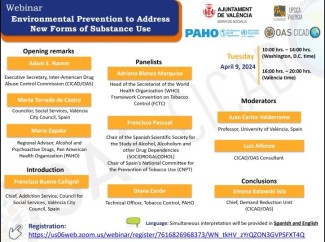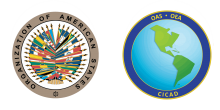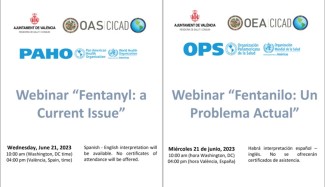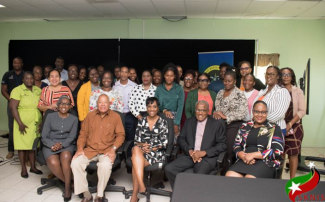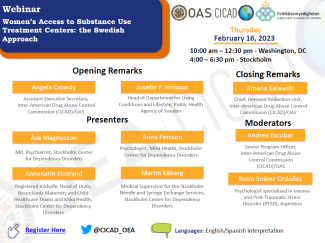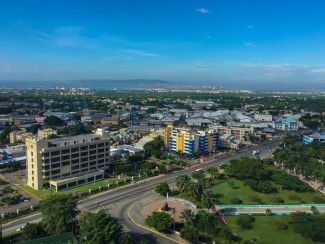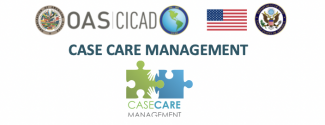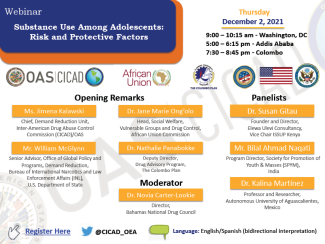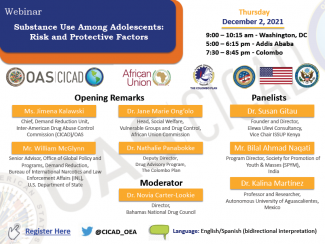Environmental Prevention to Address New Forms of Substance Use
The Executive Secretariat of the Inter-American Drug Abuse Control Commission (ES-CICAD), the Pan-American Health Organization (PAHO), and the Valencia City Council, Spain, invite you to this webinar on "Environmental Prevention to Address New Forms of Substance Use" on Tuesday, April 9, starting at 10:00 (Washington, DC time).
